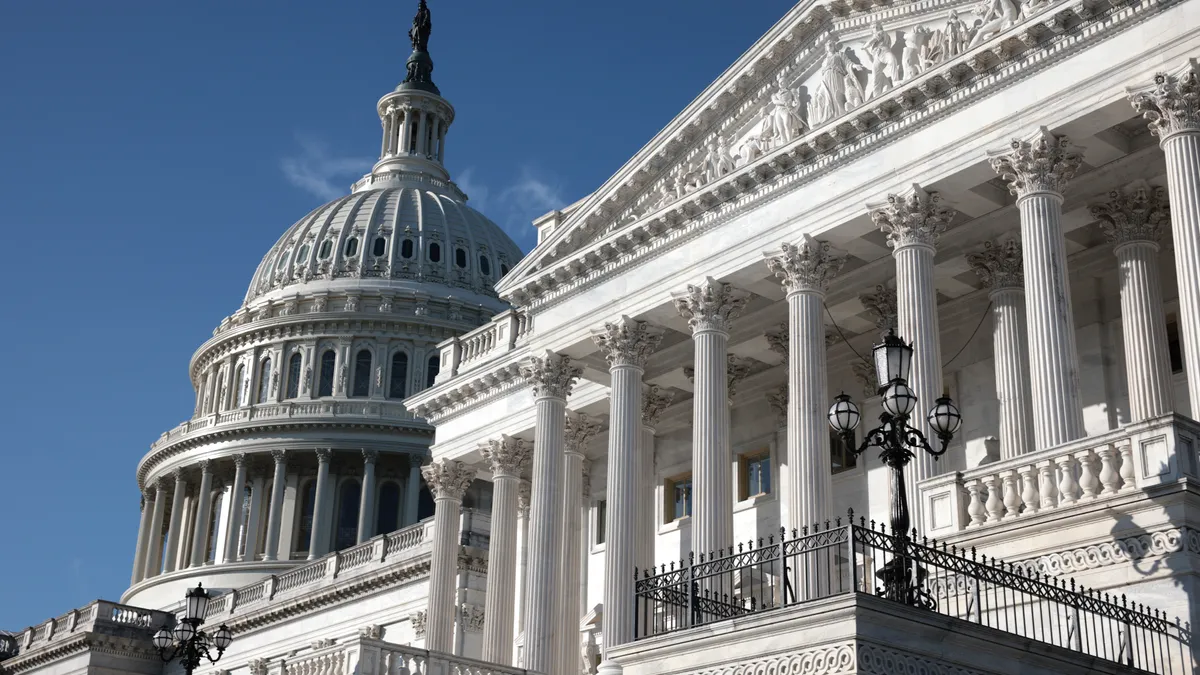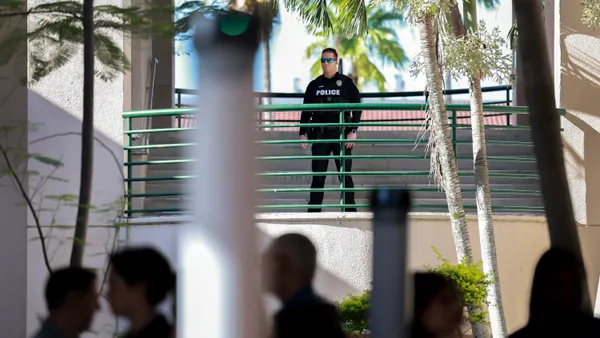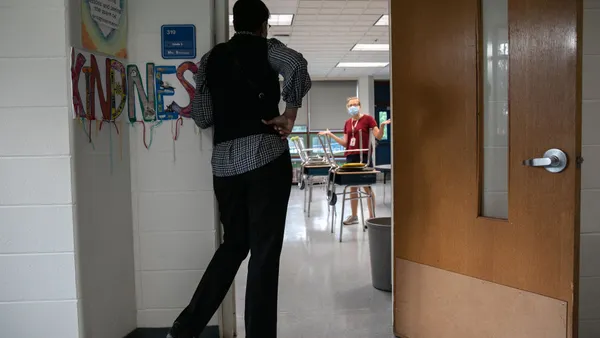Dive Brief:
- Amid a surge of pressure to ban a variety of books in schools and libraries nationwide, the U.S. Senate Committee on the Judiciary on Tuesday debated the reasoning for removing certain books from schools.
- Republicans said challenges to books are meant to protect children from sexually explicit content, while Democrats said such moves are a threat to democracy. Republicans also said Democrats were mischaracterizing book bans, as Democrats noted the books removed most often from shelves highlighted topics on race and racism or LGBTQ+ issues.
- Democrats and Republicans on the committee generally agreed, however, that there’s not much of a role Congress should play in deciding whether a school or district should withhold a book from classrooms and libraries.
Dive Insight:
Over 2,500 unique book titles were targeted for censorship in 2022, according to Emily Knox, an associate professor at the University of Illinois, who testified at the hearing. “Almost all of the books could be categorized as diverse — books by and about LGBTQIA, native, people of color, gender diversity, people with disabilities, and ethnic, cultural and religious minorities,” Knox said.
Limiting access to books about antisemitism or racism, for instance, does “not protect students from the actual history or the reality that hate still exists,” said Judiciary Committee Chairman Sen. Dick Durbin, D-Illinois.
Durbin added that no one is pushing for sexually explicit content to be made available in elementary school classrooms. At the same time, Durbin said, no parent should dictate what another parent’s child should have access to.
“Efforts to ban books, whether they come from the right or the left … in the name of protecting students, we’re instead denying these students an opportunity to learn about different people and difficult subjects,” Durbin said.
Meanwhile, as teachers and librarians face violent threats over book challenges, Durbin said, “these efforts to ban books violate our most cherished principles as Americans and betray our values as a nation.”
The committee’s ranking member, Sen. Lindsey Graham, R-South Carolina, encouraged parents to advocate for their children at local school board or library board meetings. Additionally, he questioned what he should do as a senator over local book bans.
“About this hearing, what is our role here? What am I supposed to do? Am I supposed to take over every school board in the country?” Graham asked. “Am I supposed to, as a United States senator, take over the libraries over all of this country and be the final say of what goes in a library? I hope not. I think not.”
Ultimately, Graham said the decision should be up to school boards, no matter if those local officials are elected or appointed.
Later in the hearing, Sen. Cory Booker, D-New Jersey, agreed with Graham that he doesn’t see that there’s much Congress can do regarding local book bans. “We will make no laws addressing this,” he said.
It’s still important, however, to discuss these larger issues in Congress, Booker said.
“This, to me, is about something deeper that’s going on in the American culture that is really troubling,” Booker said. “We were founded on big principles of democratic ideals. In a diverse democracy, it is so necessary that we know each other, that we see each other, that we understand each other. That’s what makes us strong.”
Max Eden, a research fellow at the American Enterprise Institute, testified that the term “book ban” has been misconstrued, considering the public can still access books to purchase online or from bookstores. “It’s a question of community curation, and no student is actually blocked from acquiring the book in a broader sense,” Eden said.
School districts are responding to legitimate parental concerns, said Sen. Mike Lee, R-Utah. “They should be removing things. Shame on them if they don’t, and shame on those who want to groom children sexually,” Lee said.
Meanwhile, Illinois has become the first state to prohibit book bans in libraries by passing a law in June that will withhold state funding from libraries if they remove books based on “partisan or doctrinal disapproval.”
Illinois Secretary of State Alexi Giannoulias, who spearheaded the legislative effort, testified during the hearing that book challenges in schools and libraries are “government overreach at its peak.”
“Our legislation establishes a clear path, opposite and away from the damaging trend to ban and censor books that a small group agrees with,” Giannoulias said. “We need to take any hint of censorship seriously.”
Durbin said there’s a need for national effort to push back against community-wide bans on books. He also praised Illinois’ new law barring book removal and said he hopes other states will follow suit with similar legislation.






 Dive Awards
Dive Awards







